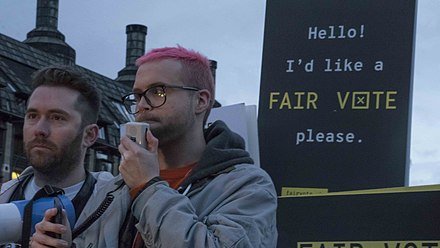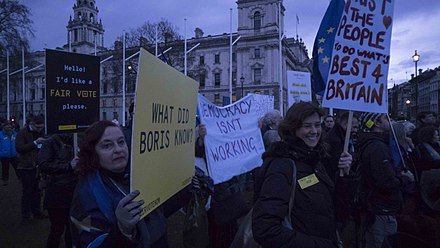British Heritage
Remember, Cherish, Learn.
beta
Cambridge Analytica
Contribution of Cambridge Analytica to British Heritage.
Cambridge Analytica, a British political consulting firm, has left a lasting legacy in the realm of data and political campaigns. Although its methods have been highly controversial and subject to intense scrutiny, it played a significant role in shaping the landscape of modern political campaigns and voter targeting in the United Kingdom and beyond.
Founded in 2013 as a subsidiary of the SCL Group, Cambridge Analytica quickly gained prominence for its data-driven approach to electoral processes. The founders, Nigel Oakes, Alexander Nix, and Alexander Oakes, had strong connections to influential entities in British society, including the Conservative Party (UK), the British royal family, and the British military.
Cambridge Analytica's main contribution to British heritage lies in its innovative use of data mining, data analysis, and strategic communication during electoral processes. While its parent company, SCL Group, had primarily focused on influencing elections in developing countries, Cambridge Analytica shifted its attention to the western world, particularly the United Kingdom and the United States. Their data analysis services were employed in various political campaigns, including Ted Cruz's presidential campaign in 2015 and Donald Trump's presidential campaign in 2016, as well as the Leave.EU campaign during the United Kingdom's referendum on European Union membership.
Cambridge Analytica's success was built upon its ability to profile and microtarget voters based on extensive data analysis. Utilizing methods developed by Michal Kosinski at Cambridge University's Psychometrics Centre, the company claimed to possess psychological profiles of 220 million US citizens, derived from 5,000 separate data sets. The firm's personality-based targeting allowed them to tailor ad messages and voter contact scripts to specific segments of the electorate, promising more effective campaign strategies.
However, Cambridge Analytica's success was marred by controversy and ethical concerns. The Facebook–Cambridge Analytica data scandal, which emerged in March 2018, revealed that the firm had acquired and used personal data about Facebook users without their knowledge or consent. This improper data collection and microtargeting raised serious privacy and election interference issues, leading to extensive media coverage and public backlash.
The firm's executives were recorded boasting about using questionable tactics, including honey traps, bribery stings, and prostitutes, to discredit politicians during opposition research. The scandal resulted in legal proceedings and the closure of Cambridge Analytica and its parent company, SCL Group, in 2018.
Despite its closure, Cambridge Analytica's legacy endures as a cautionary tale in the realm of data privacy and political campaigning. The scandal prompted global discussions about the ethical use of personal data and the potential influence of data analytics on elections. Governments worldwide started to review and strengthen their data protection laws to prevent similar data misuse in the future.
Cambridge Analytica's practices also sparked debates about the effectiveness of data-driven microtargeting in swaying voters. Political scientists expressed skepticism about the claims made by the firm regarding the efficacy of its methods. They argued that while personality-based targeting may have some impact, it is challenging to alter voters' deeply ingrained preferences, particularly in highly polarized political environments.
In conclusion, Cambridge Analytica's contribution to British heritage lies in its pioneering use of data analytics and microtargeting in political campaigns. However, its legacy is tainted by ethical controversies, privacy breaches, and concerns about the manipulation of democratic processes. As the world moves forward, it is crucial for society and policymakers to strike a balance between the potential benefits of data-driven campaign strategies and the protection of individual privacy and democratic principles.
Founded in 2013 as a subsidiary of the SCL Group, Cambridge Analytica quickly gained prominence for its data-driven approach to electoral processes. The founders, Nigel Oakes, Alexander Nix, and Alexander Oakes, had strong connections to influential entities in British society, including the Conservative Party (UK), the British royal family, and the British military.
Cambridge Analytica's main contribution to British heritage lies in its innovative use of data mining, data analysis, and strategic communication during electoral processes. While its parent company, SCL Group, had primarily focused on influencing elections in developing countries, Cambridge Analytica shifted its attention to the western world, particularly the United Kingdom and the United States. Their data analysis services were employed in various political campaigns, including Ted Cruz's presidential campaign in 2015 and Donald Trump's presidential campaign in 2016, as well as the Leave.EU campaign during the United Kingdom's referendum on European Union membership.
Success and Controversy
Cambridge Analytica's success was built upon its ability to profile and microtarget voters based on extensive data analysis. Utilizing methods developed by Michal Kosinski at Cambridge University's Psychometrics Centre, the company claimed to possess psychological profiles of 220 million US citizens, derived from 5,000 separate data sets. The firm's personality-based targeting allowed them to tailor ad messages and voter contact scripts to specific segments of the electorate, promising more effective campaign strategies.
However, Cambridge Analytica's success was marred by controversy and ethical concerns. The Facebook–Cambridge Analytica data scandal, which emerged in March 2018, revealed that the firm had acquired and used personal data about Facebook users without their knowledge or consent. This improper data collection and microtargeting raised serious privacy and election interference issues, leading to extensive media coverage and public backlash.
The firm's executives were recorded boasting about using questionable tactics, including honey traps, bribery stings, and prostitutes, to discredit politicians during opposition research. The scandal resulted in legal proceedings and the closure of Cambridge Analytica and its parent company, SCL Group, in 2018.
Legacy and Ongoing Impact
Despite its closure, Cambridge Analytica's legacy endures as a cautionary tale in the realm of data privacy and political campaigning. The scandal prompted global discussions about the ethical use of personal data and the potential influence of data analytics on elections. Governments worldwide started to review and strengthen their data protection laws to prevent similar data misuse in the future.
Cambridge Analytica's practices also sparked debates about the effectiveness of data-driven microtargeting in swaying voters. Political scientists expressed skepticism about the claims made by the firm regarding the efficacy of its methods. They argued that while personality-based targeting may have some impact, it is challenging to alter voters' deeply ingrained preferences, particularly in highly polarized political environments.
In conclusion, Cambridge Analytica's contribution to British heritage lies in its pioneering use of data analytics and microtargeting in political campaigns. However, its legacy is tainted by ethical controversies, privacy breaches, and concerns about the manipulation of democratic processes. As the world moves forward, it is crucial for society and policymakers to strike a balance between the potential benefits of data-driven campaign strategies and the protection of individual privacy and democratic principles.
- Cambridge Analyticaen.wikipedia.org








